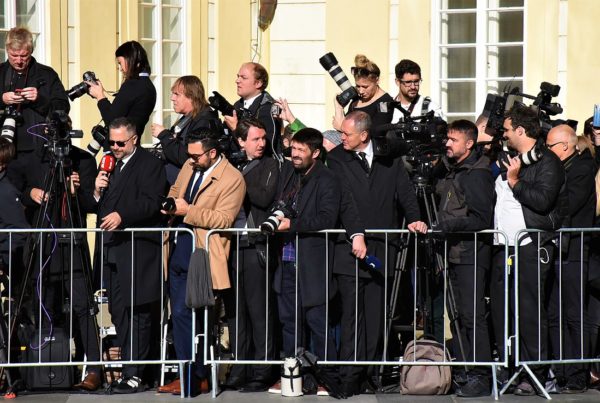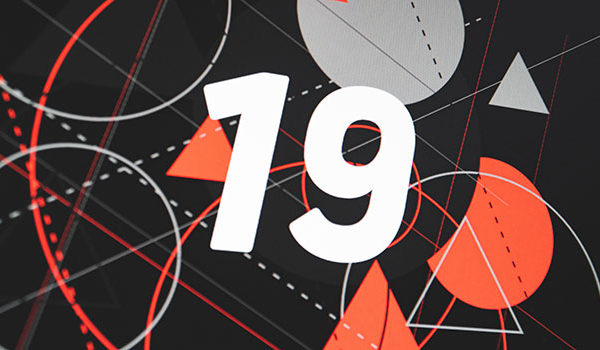Paris, November 13, 2015 was a game-changer. That is the message echoing along the corridors of power; not just in the Elysee Palace, but in Washington, London and across the democratic world. What does that mean? In one democracy, there is the hope – though not the expectation – that the Middle Eastern savagery unleashed in the heart of Western Europe will prompt a shift in mindset, not simply in the strategy taken towards ISIS. Israel is looking for its allies in the West to adopt an uncompromising, cross-party opposition to the ideology of Islamism, in all its forms.[1] Israel is urging them to see, in the horrors perpetrated by four terrorists claiming allegiance to ISIS, but just one manifestation of the barbarism inherent in an ideology shared also (with some variations) by Shi’ite Iran and Sunni Hamas.
President Francois Hollande has declared France to be “at war” with ISIS. Israel considers itself to be at war not just with Hamas on its southern border and Hezbollah on its northern border, but with the ideology animating them both. It is this fact, coupled with Europe’s post-modern estrangement from the concept of war against an ideology, that has helped created a disconnect between Israel and many of its allies.
Under George W. Bush, the United States did relate to Islamism in a similar manner to Israel. Barack Obama moved the country to a more European approach. His attempt at a rapprochement with Iran follows his earlier very warm relationship with Turkey’s Islamist President (then Prime Minister) Recep Tayyip Erdogan [2] and his willingness to embrace the democratic election of Mohamad Morsi in Egypt, despite this representing a victory for the Muslim Brotherhood – the original purveyors of anti-western Islamic radicalism in the Middle East.
The New Fascism
It has been 70 years since Europe was pushed to the brink of the abyss by a fanatical ideology, willing to slaughter as many people as required in pursuit of its aims. Europeans today, and many other Westerners, struggle to imagine a worldview so entirely different from their own with regard to the sanctity of human life and the fundamental equality of each individual. They cannot fathom a regime such as Hamas that would, for example, deliberately place its own people in the line of fire as a military tactic (in its multiple mini-wars with Israel in Gaza[3] and by Hezbollah during its war with Israel in 2006[4]). They cannot comprehend a belief system that indoctrinates children to “martyr” themselves – a regular feature of Palestinian society exposed by Israeli media watchdogs such as the Middle East Media Research Institute[5] and Palestinian Media Watch[6]. This belief system is very much in evidence at the time of writing, with 14 and 15-year olds incited by Hamas clerics to attack Israeli soldiers and civilians with kitchen knives in this latest iteration of Palestinian terrorism. Islamist Iran had its own variation on child abuse-through-indoctrination: the Ayatollahs sending schoolchildren to clear minefields during the long war with Iraq (1980-88).
In his study of the British Left’s abandonment of its progressive values in the name of anti–imperialism, anti-Americanism and anti-Zionism, British journalist Nick Cohen places Islamism and the Ba’athism of Saddam Hussein in a continuum of totalitarianism with communism and fascism:
“The famines Stalin, Mao and the Ethiopian colonels unleashed, Pol Pot’s extermination of anyone who could read or write, Hitler’s annihilation of the Jews, gypsies, gays and Slavs, Saddam’s regime of torture and genocide and the Islamist cult of death aren’t rationally explicable. You can cross over to the other side of the abyss only if you shrug off your reasonable liberal belief that every consequence has an understandable cause…”[7]
Israel is firmly ensconced on the “other side of the abyss” because it recognizes the depth of that abyss; the enormity of what divides liberal democracies from the worldview waiting across the chasm. Meanwhile, the western inclination has often been to look for the causes behind Islamist terror and to find them in their own misdeeds; a peculiar masochism rendered by Cohen as the “kill me, I deserve it” tendency.
The attacks of 9/11 were of a scale so extraordinary that this response was seen only on the fringes, from far-left ‘usual suspects’ like Noam Chomsky[8]and George Galloway. It was not unusual however, following the slaughter of 52 people in London on July 7, 2005 to hear the claim that the British-born suicide bombers responsible were ‘driven to it’ by Tony Blair’s involvement in the invasion of Iraq.
Mainstream Israel, including the majority of those who vote for left-wing parties (more on that below), rejects this view, seeing in its Islamist foes an implacable, irrational hatred of the democratic way of life. And though not all will state as baldly as Benjamin Netanyahu does that “ISIS-equals-Hamas-equals-Iran”, there is little sympathy for the distinction made by most Western media – reflecting public opinion no doubt – between the ‘terrorists’ of al-Qaeda and ISIS, and the ‘militants’ of Hamas and Hezbollah.
Of course Israel is not just any old democracy — it is a Jewish democracy.
The late Anglo-American polemicist Christopher Hitchens coined the phrase “fascism with an Islamic face” after 9/11, and subsequently referred to “Islamo-fascism”.[9] Alongside the totalitarian trappings, the hatred of democratic freedoms and the glorification of violence, Islamism has swallowed whole – and reconstituted with Islamic adornments – the antisemitism of the European far-right.
The examples of this are multiple. The Hamas Covenant’s invoking a sinister Jewish world conspiracy that controls international organizations and starts World Wars reads like a Muslim Mein Kampf.[10]The Islamic Republic of Iran has made denial of the Holocaust part of its anti-western orthodoxy while its Lebanese proxy has pointedly targeted Jews, not just Israelis, in its global terrorist efforts.[11] Prior to the atrocities of November 13, it had been France’s Jewish community that bore the brunt of most of the attacks by local jihadists.[12]
The intrinsic antisemitism of Islamism is related to its absolutist position on Israel: that the existence of a sovereign Jewish entity in the heart of the Muslim world cannot be tolerated.
For Israelis, Islamist terror is exemplified most poignantly not by events in New York in September 2001, but by the Second Intifada which began a year earlier. It claimed over 1000 Israeli lives, mainly civilians, the victims of suicide bombers who targeted buses, cafes and nightclubs.[13]When Israel withdrew from the Gaza Strip in the summer of 2005, the response of Hamas was to seize the opportunity provided by the withdrawal of Israeli soldiers (along with around 8,000 Israeli civilians) to use Gaza as a base from which to launch rockets – often dozens a day – and to kill or kidnap Israeli soldiers stationed on the border.
Israelis will take some convincing that Islamist forces will be appeased by further Israeli concessions. Indeed, the very real fear that an Israeli withdrawal from the West Bank would create a vacuum to be filled by Hamas or even al-Qaeda or ISIS is the principal reason for Israeli scepticism about the peace process. The key to Netanyahu’s success in three consecutive elections since 2009 has been his ability to reflect a swathe of mainstream public opinion. An opinion which does recognize that peace will ultimately be achieved only through the concession of most of the West Bank to the Palestinians, but that is sceptical about either the ability or the willingness of the secular Palestinian leadership to prevent an Iran-backed or Sunni jihadist takeover of any territory vacated by the Israel Defense Forces.
That is not to say that politicians to Netanyahu’s left are any closer to the European position on Islamism. Indeed Israel is arguably the only democratic country where there is a mainstream Left advocating hawkish positions on defence and foreign policy. The socialist President Hollande may soon disprove that thesis, but it remains to be seen whether a Hilary Clinton-led Democratic Party would continue President Obama’s “leading from behind”, or would return to the more muscular liberalism of her husband’s administration. Canada’s new Liberal Prime Minister, Justin Trudeau, has already pledged to end his country’s participation in the bombing of ISIS in Syria. In the UK, the Labour Party has moved 180 degrees from Blair’s interventionist convictions and is now led by a far-left anti-Zionist who has embraced Hamas and Hezbollah as “friends”.[14] By contrast, Israeli Labour Party leader Isaac Herzog has taken notably hardline positions in the fight against Palestinian terrorism and opposed the nuclear deal with Iran no less than did the Prime Minister. As reported by Jeffrey Goldberg in The Atlantic:
“Iran, [Herzog] said, is an ’empire of evil and hate that spreads terror across the region,’ adding that, under the terms of the deal, Iran ‘will become a nuclear-threshold state in a decade or so.’ Iran will take its post-sanctions windfall, he said, and use the funds to supply more rockets to Hezbollah in Lebanon, more ammunition to Hamas in Gaza, and ‘generally increase the worst type of activities that they’ve been doing.'”[15]
Islamism is the enemy – without distinctions
At the heart of this position is Israel’s perception of Islamism, in all of its variants, as a threat. ISIS and al-Qaeda may be the headline-makers in the Islamist world, but Israel is (for now) far more concerned with Hamas; the Islamic Republic of Iran (which, for all ISIS’s pretentions is the only genuine Islamist state); and Iran’s long arm in the Levant, the Shi’a Islamists of Hezbollah.
Periodic calls from Western commentators to recognize Hamas’s “moderation” are regarded by Israel as delusional at best. For every article in English by a Hamas spokesman in the western media, Israel can point to innumerable public calls for the annihilation of the Jewish state by the leaders of the movement.[16] About Palestinian Authority President Mahmoud Abbas and his Fatah movement there is debate in Israel: is he a genuine partner for peace? About Hamas and the smaller Palestinian Islamic Jihad there is no doubt; they are looking to undo not 1967 – the occupation that followed the Six-Day War – but 1948 – the very creation of the modern State of Israel.
With Iran there is, similarly, across-the-board fear and loathing of a regime that has repeatedly declared its wish to “wipe Israel off the map”; that has been the principal funder of Hamas since the Second Intifada; and is the creator and master of Hezbollah, which is estimated to have 100,000 rockets at its disposal for use against Israeli targets.[17]
Israel’s main argument against the nuclear deal with Iran (the Joint Comprehensive Plan of Action) is that it essentially brings Iran back into the international fold; reversing sanctions and opening the door to lucrative international commercial contracts, both diplomatically and economically rehabilitating a country whose pariah status was the main obstacle to its ambitions for regional hegemony. And all of this for in exchange for restrictions which will delay but not end its nuclear weapons program. As Netanyahu put it in that speech to the US Congress in March of this year:
” …when the deal expires… The foremost sponsor of global terrorism could be weeks away from having enough enriched uranium for an entire arsenal of nuclear weapons, and this with full international legitimacy. “[18]
The decision to include Iran in the multiparty talks over Syria similarly makes no sense to Israel. Iran is part of the problem in Syria (as in Gaza, Lebanon, Iraq and Yemen); it cannot be part of the solution. The international community, led by the US, is turning to Shi’a Islamist sponsors of terror to assist in the war against Sunni Islamist terror. (Sceptics can further note that both Iran and Syria have supported and hosted Sunni jihadists in the past, and used them against American forces.)[19]
The events following the ‘Arab Spring’ in Egypt provide another example of where Israel’s comprehensive opposition to Islamism has led it to take positions at odds with allies, notably the US under Obama. Israel, in marked contrast with the US, welcomed the overthrow of the short-lived Muslim Brotherhood regime of Mohamed Morsi. Elected he may have been, but – Israel would point out – so was Hamas in the 2006 Palestinian parliamentary elections. Even in nominally democratic Turkey, Erdogan’s Justice and Development Party is regressing back to its Islamist roots, fast eroding civil liberties. Turkey today vies with China and Iran for the title of number one jailer of journalists while Erdogan himself has referred to democracy as a train that you get off once you reach your destination.[20]
Former Israeli Prime Minister Ehud Barak has called Israel “a villa in the jungle”.[21] An undiplomatic metaphor for sure, but that also speaks to Barak’s point: Israel is not exactly surrounded by friends that it needs to, or indeed can, placate. To employ a different image, as the world is being buffeted by the most violent Middle Eastern storm, Israel is situated in the eye of it. With Hamas on one border, Hezbollah on another, and the terror-infested ruins of what used to be Syria on a third, Israel does not have the luxury of attempting to mollify these forces with concessions. Further, each Islamist opponent – no matter Sunni or Shia, Palestinian nationalist or global jihadi – sees the destruction of the Jewish state as a religious imperative. When the only way to appease an enemy is to commit suicide, the situation requires sticks not carrots, military might and the willingness to exert it, not negotiations or ‘confidence-building-measures’.
Israel is a democracy in the most persistently undemocratic region of the world. It sees Islamism as the latest totalitarian threat to the democratic way of life. As long as its fellow democracies look to conciliate this ideology, or hope for its moderation, they will likely view Israel as an obdurate or unhelpful ally. Israel meanwhile will wait for the election of new leaders, in Washington above all, who recognize this new fascism for what it is.
Disclaimer: The views expressed in this article are solely those of the author and do not reflect the official policies of The Mackenzie Institute.








